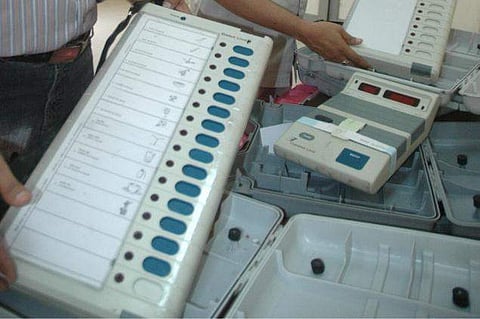India Inc backs 'One Nation, One Election', says will 'enhance' economic activity
NEW DELHI: India Inc, the nation's formal sector, has come in full support of the idea of 'One Nation, One Election' as it would synchronise electoral cycles at the central and state levels, thus enhancing governance efficiency and fostering economic development.
Representatives from industry bodies FICCI and CII recently met a high-level committee on 'One Nation, One Election' chaired by former President Ram Nath Kovind and briefed the panel on its benefits.
The panel has been constituted to study the feasibility of holding simultaneous state and national elections.
FICCI President Anish Shah said there are over 2,50,000 FICCI members across the country, who feel that multiple elections at various levels impact the ease of doing business, slow down decision-making in government and lead to avoidable costs, both for employees and employers.
Secretary General S K Pathak proposed one election every 5 years for central, state and local governments; brief code of conduct period, so that government decision-making is not slowed; and all eligible voters to be in universal electoral rolls, using India Stack technology.
FICCI said that at a time when India is on its way to becoming the third largest economy in the world, it is important that the electoral process be reassessed, which will result in a better outcome for the people and enhance economic activity.
The Confederation of Indian Industry (CII) also presented its views to the committee in a separate meeting held earlier.
"CII's view was based on the economic benefits of streamlining the electoral process, that would enhance governance efficiency and foster economic development," the industry body stated.
It argued that asynchronous multiple elections lead to frequent disruptions in policymaking and administration, leading to uncertainty about the government's policies.
"It also affects the working of the governments due to officials being roped in for election duties. Investment decisions by the private sector tend to slow down prior to elections," said CII.
"Further, it leads to delays in project implementation as the model code of conduct gets imposed."
CII emphasised that simultaneous elections offer a propitious solution by effectively reducing project implementation delays and a likely cost savings of half the total expenses incurred by the central and state governments in administering elections.
"In view of both the economic losses and the slowdown in policy-making, CII suggests that India should revert to cycle of simultaneous elections. CII believes there are two options of doing this: one is a single five-year cycle and the other is a two-stage simultaneous election with a gap of at least 2.5 years between Lok Sabha elections and state elections in the interim period."

